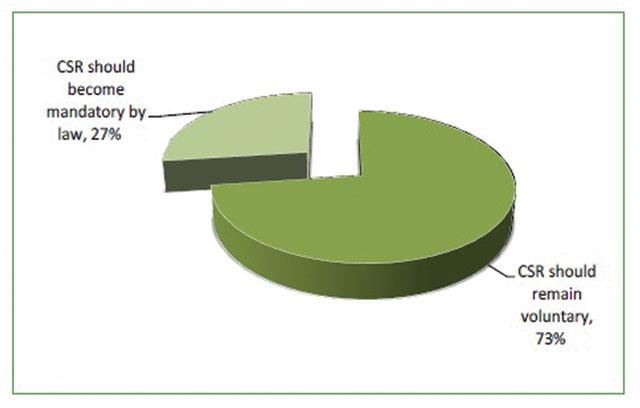You are here
Study calls for law to regulate corporate social responsibility
By Laila Azzeh - Jun 08,2015 - Last updated at Jun 08,2015
AMMAN — A new study recommends enacting legislation that obliges corporations to exercise corporate social responsibility (CSR) by allocating a certain percentage of their annual profits for community development purposes.
The “Mapping Corporate Social Responsibility in Jordan in 2014” study showed that 444 activities identified as CSR took place last year, with the banking and finance sector carrying out 37.7 per cent.
It also highlighted that CSR initiatives targeted eight different areas, including poverty and unemployment reduction, activities sponsorship, community development, and health and environment protection.
“The main aim of the study is to identify the economic sectors most active in providing societal support and not-for-profit activities in order to understand areas of strength and weakness in CSR practices,” said May Al Taher, director of Vision Institute for Civil Society Studies, which conducted the study.
During the official launch of the first annual report with the support of the Dutch embassy in Amman, Taher highlighted that the banking sector carried out one-third of all CSR activities last year.
This was followed by the trade and commercial sector (13.7 per cent), telecommunications (13.5 per cent), manufacturing industries (10.8 per cent), tourism (10.1 per cent), education (5.2 per cent), health (4.3 per cent), transport (4.1 per cent) and construction (1.6 per cent).
The study said a small number of companies carried out most of the CSR activities last year, and the overall initiatives were characterised as seasonal in the sense that they were in response to emergencies.
“CSR in Jordan still tends to suffer from a lack of institutional mindset,” Taher said, citing the report’s main findings.
On the other hand, the study showed that many businesses continue to “confuse between intermittent philanthropic acts and development projects that leave clear and sustainable impacts on the community”.
Dutch Ambassador to Jordan Paul van den IJssel underlined that social responsibility is an economic policy that helps increase productivity and profit through investing in capital and human resources.
It also contributes to developing companies in a way that serves the local community and leads to harmony and cohesion between them, he added.
The report includes several recommendations, such as motivating businesses to exercise their social role through granting them tax exemptions and incentives, and developing national CSR criteria.
It also calls for overcoming the “high centralised decision-making system existing in the majority of Jordanian businesses in the field of CSR”.
During the ceremony, several private companies presented their CSR success stories.
According to a previous study by the Vision institute, the vast majority of companies do not comprehend the concept of CSR and lack a systematic approach to integrate national, social, economic and environmental concerns into their business operations.
Related Articles
Corporate Social Responsibility (CSR) is still "failing to deliver" in a country where economic challenges are getting more chronic and doubled by turmoil, according to economic experts.
AMMAN — There is a gap between international best practices governing corporate social responsibility (CSR) and the degree to which concerne
As spending on corporate social responsibility (CSR) in Jordan ranges from JD60 million to JD90 million per year, MPs and company representatives in Jordan on Tuesday launched a consultation body to ensure efficiency and avoid duplication in projects.


















